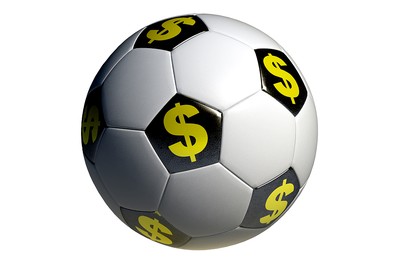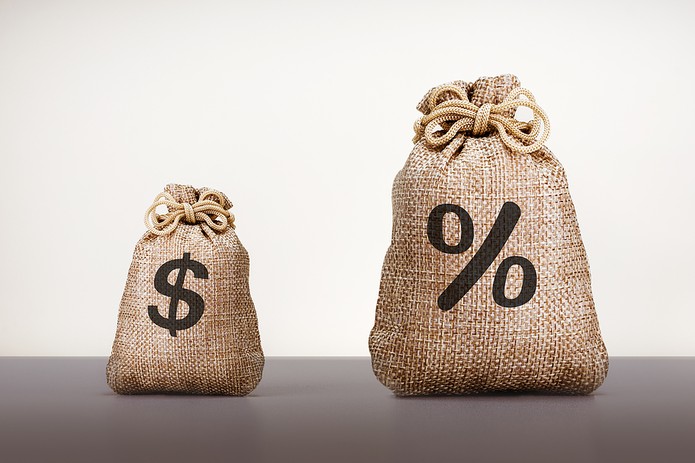 When David Beckham joined Los Angeles Galaxy in 2007, it raised eyebrows around the football world.
When David Beckham joined Los Angeles Galaxy in 2007, it raised eyebrows around the football world.
Major League Soccer has a pretty strict salary cap for each of its franchises, and when it was revealed that Beckham had take a 70% pay cut to join the LA outfit from Real Madrid, you could be forgiven for thinking that the former Manchester United ace had lost his marbles.
But it turns out that old ‘Goldenballs’ was a shrewder operator than most would have give him credit for, as he negotiated a clause in his cut-price deal that would see him net a percentage of the Galaxy’s revenue – ticket sales, merchandise, sponsorships, hot dogs and drinks….you name it, Becks was getting a cut of it.
In the end, Beckham netted a cool £215 million from the deal – more than he could have dreamed of earning through his playing salary alone.
Another canny contractual clause instigated by Beckham meant that he could also buy an MLS franchise for just £25 million – setting in motion a journey that would see him acquire the rights to Inter Miami and, in the summer of 2023, sign on of the greatest players of all-time in Lionel Messi.
Has Messi learned anything from Beckham’s profit share deal at LA Galaxy? You bet he has….
What is a Revenue Share Deal in Football?

As mentioned, the MLS has a strict salary cap that all its teams must adhere – a complication for Inter Miami given that Messi was on a reported £30 million a season at previous club PSG.
That is simply off the table in the MLS, so Beckham had to get creative in how he could tempt Messi to Miami.
In addition to his basic salary, Messi has also been offered discounted part-ownership of the club – although, unlike Beckham’s deal more than a decade ago, that won’t be subsidised by the league.
And then comes the truly money-spinning part. As part of his deal, Messi has accepted a revenue share scheme with three of Miami’s key partners – Apple, Adidas and Fanatics.
The MLS has agreed that a cut of all Apple TV subscriptions – who hold exclusive rights worldwide to live games and highlights – will be paid to Messi. The media firm will likely benefit from a boost in revenue as more fans around the globe sign up to the service to see the superstar in action.
The Argentine already has a ‘lifetime’ boot sponsorship deal with Adidas, but as part of his Miami contract he will now be entitled to a share of their revenue – the actual percentage Messi will earn has not been publicly revealed.
All told, everyone’s a winner – Messi earns stacks of cash while Inter Miami enjoy the services of a game-changing player for a fraction of the cost.
Player Power

It’s likely that when all the numbers are crunched, Messi will become the highest-paid athlete ever to strut their stuff on American soil.
The man he will replace at the top of those financial standings is Michael Jordan, who ironically was one of the first sportsmen in the world to negotiate a revenue share deal.
He agreed to represent Nike out on the basketball court, before later putting pen to paper on a revenue share deal that sees him earn 5% of every single ‘Air Jordan’ product that’s sold.
You can’t fault Jordan’s business acumen. As of 2020, he had earned $1.3 billion (£1 billion) from the agreement.
The legacy of that deal, plus the game-changing terms of Messi’s Miami contract, will likely revolutionise the way that athletes in many sport’s now negotiate their agreements – not only in terms of the salary they are paid, but also in the extra bolt-ons like revenue share that they will receive.
One agent in the NBA commented:
“That [Messi’s deal] is really going to set some alarm bells off. For the right players and the right player agents, if they have individuals who can really move the needles – so the Giannis Antetokounmpos of the world, the Nikola Jokics of the world, the Joel Embiids of the world – they are going to look at this in the next collective bargaining and say, ‘listen, players control the league.”
In the NFL, players are able to earn a slice of the league’s revenue through a collective bargaining agreement. As part of the 2020 deal, that equates to 48% of the money made by the NFL.’
Everyone knows that the players hold all the power when it comes to sporting contracts, but teams and leagues may be able to offload some of the financial burden to commercial partners if Messi’s deal breaks new ground.